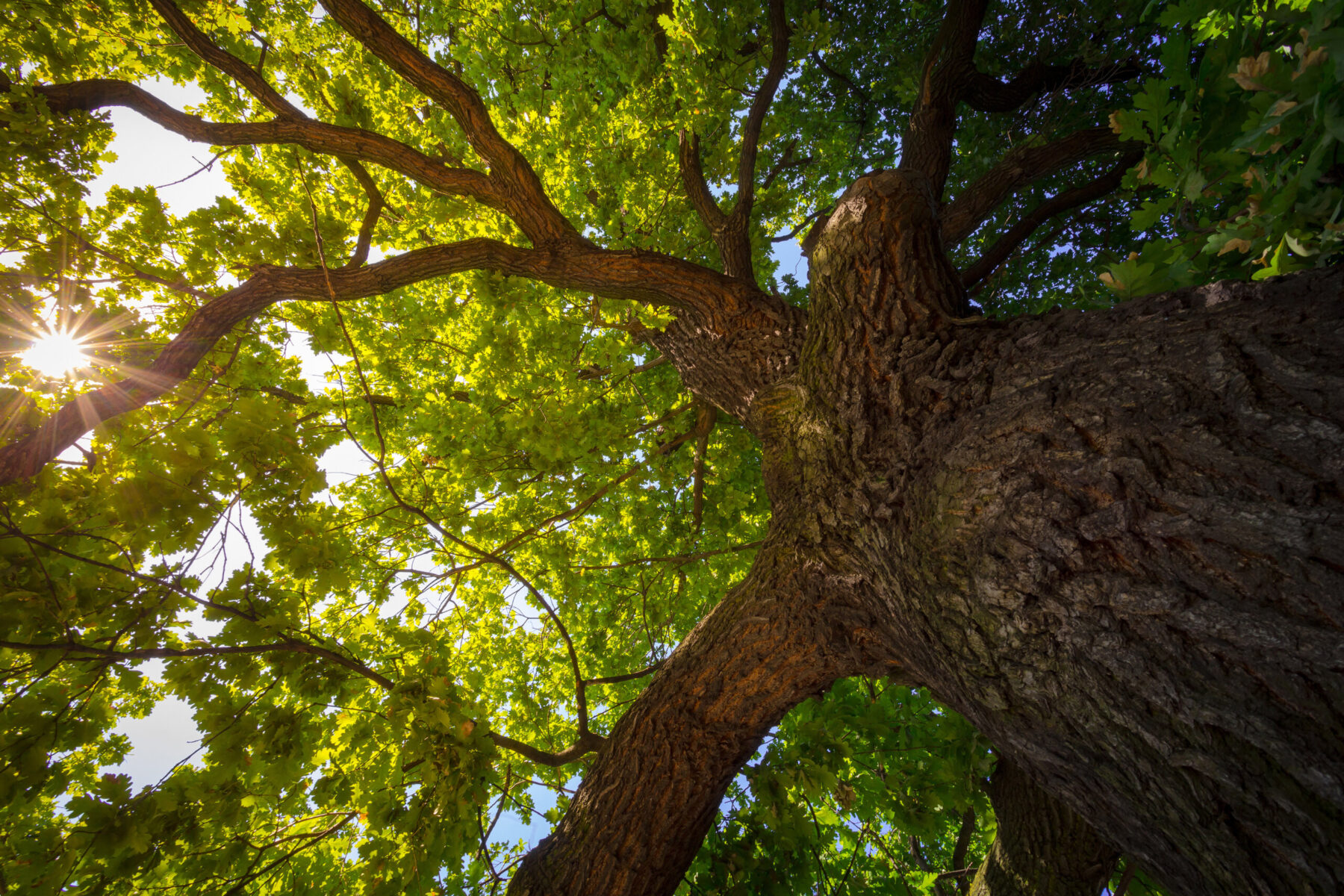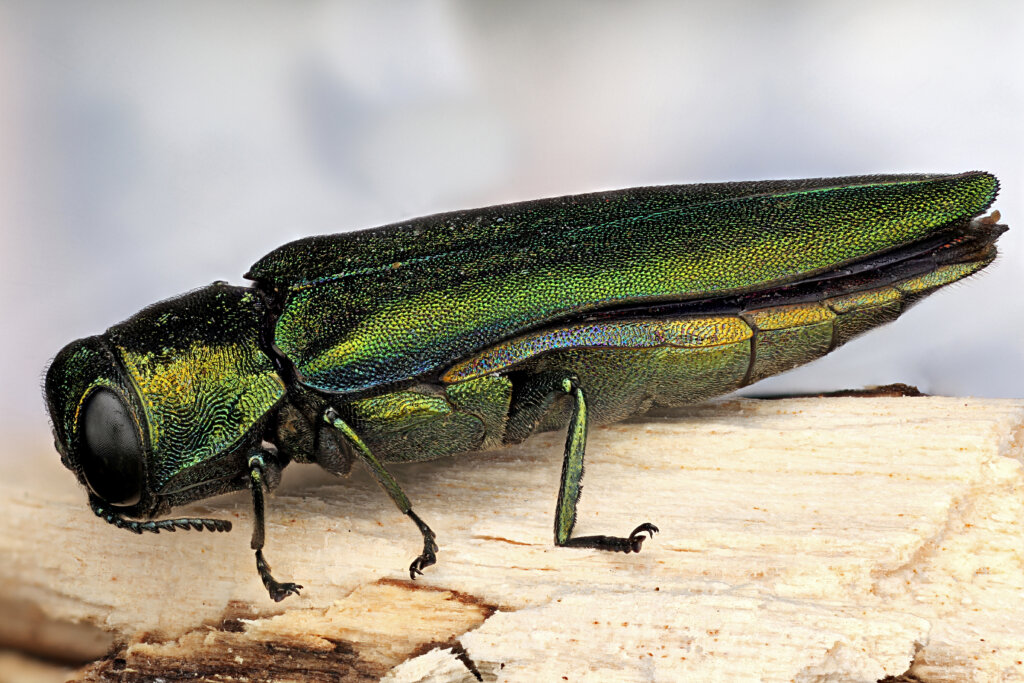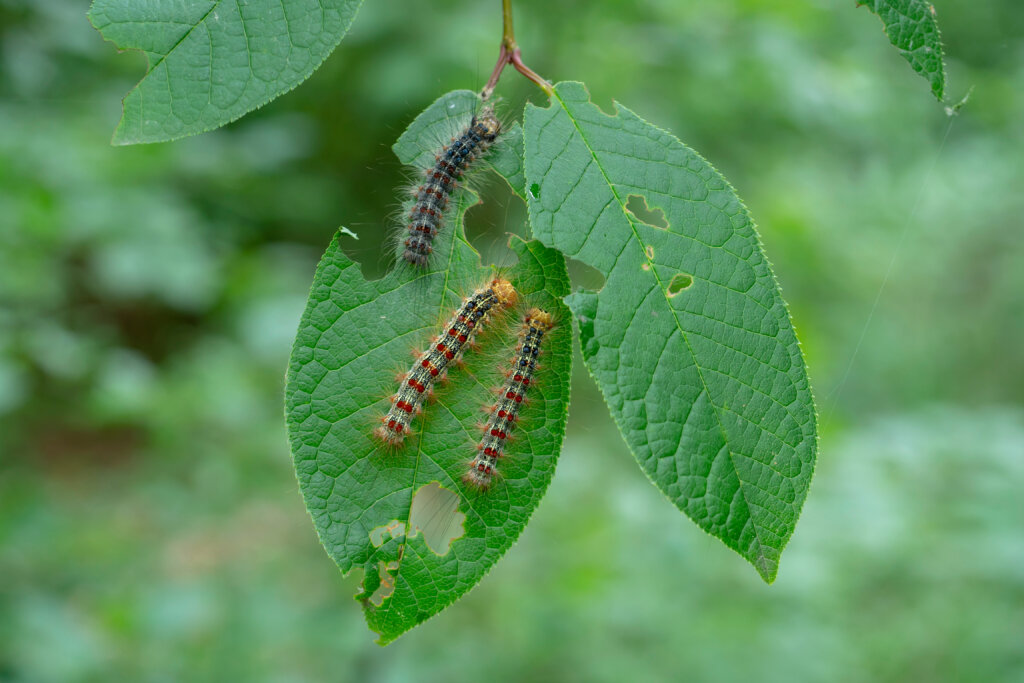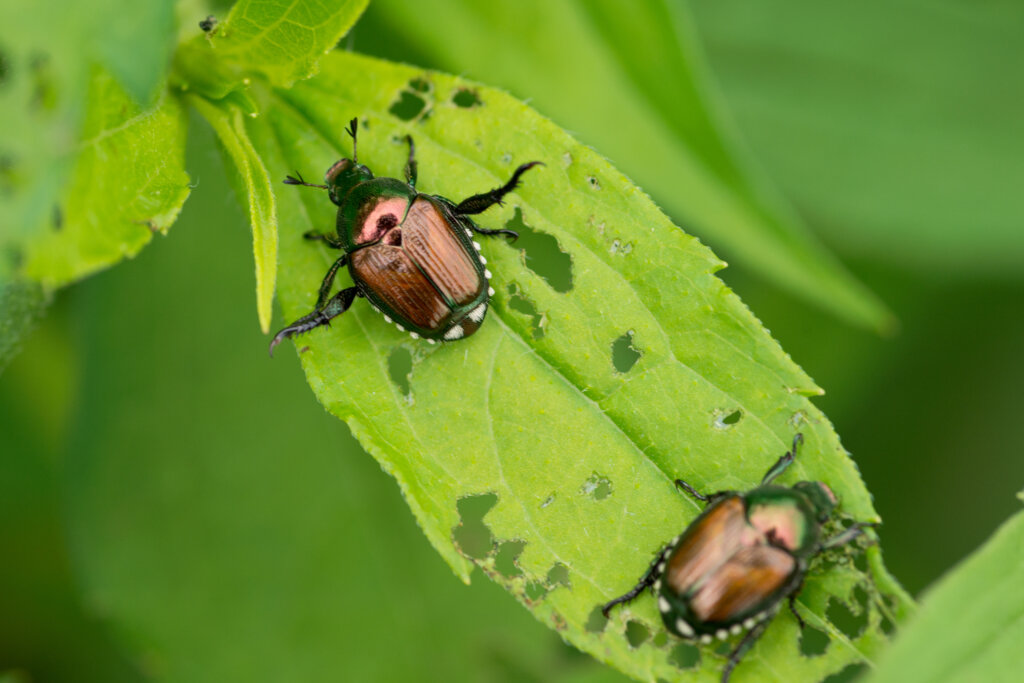
Understanding Common Threats to Trees in the Twin Cities
In the heart of Minnesota’s Twin Cities, trees line our streets and parks, creating a green canopy that not only beautifies but vitalizes our urban environment. These natural sentinels play a crucial role in enhancing our quality of life, from purifying the air to providing essential shade and shelter. However, lurking beneath this leafy facade, threats such as pests, diseases, invasive species, and environmental stressors constantly jeopardize their health and survival. Understanding these threats is the first step in ensuring the longevity of our urban forest.
Tree Pests
Emerald Ash Borer
This invasive beetle’s arrival in Minnesota has spelled doom for ash trees. By burrowing into their bark, emerald ash borer larvae cut off the tree’s ability to transport essential nutrients and water, leading to their gradual decline and eventual death.

Gypsy Moth
Notorious for their appetite, gypsy moth caterpillars devour tree leaves, leading to significant defoliation. Repeated attacks can weaken and even kill otherwise healthy trees.

Japanese Beetles
These pests pose a threat through their sheer appetite for leaves, capable of stripping a tree bare. Their presence signals a dire need for effective pest management strategies.

We’ve highlighted only some of the most damaging pests and there are numerous other pests affecting trees in the Twin Cities area. Vigilance and proactive management are key to protecting our urban forest from these threats.
Tree Diseases and Invasive Plants
Dutch Elm Disease
Once a majestic part of the Twin Cities landscape, many elm trees have fallen victim to this fungal disease, spread by elm bark beetles. The fungus clogs the tree’s vascular system, preventing water and nutrient movement and eventually causing the tree’s death.
Oak Wilt
This disease targets oak trees, interfering with their water transport mechanisms. Red oaks quickly succumb to the disease, while white oaks may resist it for a longer period, albeit often in vain.
This section focuses on a few key diseases impacting the Twin Cities’ trees, but it’s by no means exhaustive. Many diseases, each with unique symptoms and effects, pose risks to our trees, highlighting the need for ongoing monitoring and disease management.
Buckthorn
Buckthorn, an invasive shrub, has become a significant threat to the natural forests around the Twin Cities, outcompeting native vegetation and disrupting local ecosystems. It forms dense thickets that obstruct the growth of native tree saplings and understory plants, reducing biodiversity. Efforts to control buckthorn include mechanical removal and chemical treatments, as its hardiness and ability to re-sprout make it a persistent adversary to our regional flora.
The Impact of Environmental Stressors
The dual threats of climate change and urbanization intensify the challenges faced by our trees. For example, increasingly erratic weather patterns exacerbate the spread and impact of diseases like Oak Wilt, while urban development restricts the available space for trees to thrive. Illustrative cases from the Twin Cities, such as the loss of ash trees to emerald ash borer, underscore the urgent need for action.
- High-Risk Tree Services: For trees that pose a safety risk due to their condition or location, explore our High-Risk Tree Services, where skilled professionals manage the safe removal of hazardous trees.
- Tree & Shrub Cutting: Maintain the health of your trees and shrubs and prevent potential threats with our precise Tree & Shrub Cutting services, tailored to address both storm-damaged limbs and other risks.
Combating Tree Threats in the Twin Cities
Thankfully, both community and governmental efforts are underway to combat these threats. Monitoring programs help in the early detection of pests and diseases, while the planting of resistant tree species and public education campaigns on tree care practices are vital steps in preserving our urban forest.
Mitigation and Adaptation Strategies
Homeowners and local communities play a critical role in tree protection. Simple actions, like selecting disease-resistant trees for planting and supporting green initiatives, can have a profound impact. Furthermore, ongoing research and technological advancements are developing new ways to protect our trees from these growing threats.
- Tree Removal: If you’re dealing with a deceased or pest-infected tree, consider our Tree Removal services, which include safe removal and cleanup.
- Site Clearing: Prepare your property for new plantings or construction with our comprehensive Site Clearing services, ensuring a clean slate for your landscaping and construction projects.
Our Collective Effort to Safeguard the Twin Cities’ Urban Forest
At Tree Top Climbers, we’re dedicated to delivering expert tree care and removal services across the Minneapolis and St. Paul metro area, ensuring our urban forest remains a healthy and vibrant part of our community. Whether you are facing the challenge of tree pests or disease, have a hazardous tree on your property, or just need seasonal trimming, we’re here to help with top-notch service at an affordable price. If you’re ready to take action and contribute to the health of our urban canopy, let’s get started together. Reach out to us for any tree care needs, and join us in our mission to protect and enhance the Twin Cities’ green legacy for future generations.